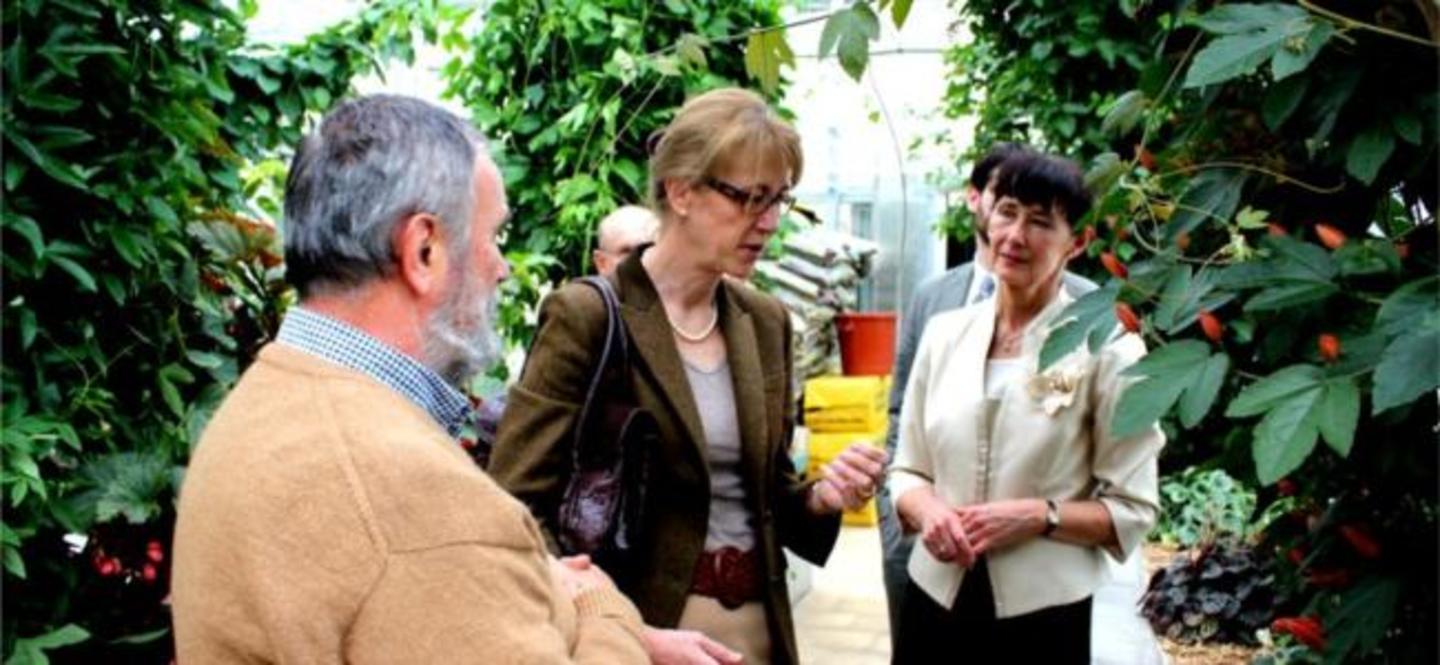The 180 year old Vácrárót Botanical Garden is the most significant botanical garden in Hungary and the richest in terms of plant life. In the 29 hectares garden, visitors can appreciate more than 13,000 different plant species and more than 1,300 trees and shrubs from the Hungarian flora, the Russians steppes, Central Asian mountains, the Rocky Mountains in North America and from the Far East. The garden is also home to the richest scientific plant collection in Hungary.
Responded to local needs
The development of an environmentally friendly heating system was particularly necessary because of the high heat requirements of the tropical plant collection in the botanical garden’s greenhouses. The renewable energy project in Vácrátót was motivated by this specific local need, while the methods selected corresponded to global initiatives for solving the environmental crisis.
By installing a combined geothermal and biomass heating system, the long-term preservation of the tropical plant collection in the glass houses is ensured. In addition, several public buildings have been connected to the new energy sources and a new visitor centre has been established with the aim of increasing public knowledge about climate changes.
Local solutions to global problems
“This project is a great example of cooperation in order to achieve locally and globally crucial objectives. By the increased and innovative use of renewable energies, especially geothermal energy, this project has contributed to more sustainable and environmentally friendly energy utilization”, Norwegian Ambassador to Hungary H.E. Siri Ellen Sletner said during the closing conference of the project.
In addition to heating the greenhouses and the MTA ÖK buildings, the renewable energy based heating system also supplies the village school, the nursery school, the mayor´s office and the Sport Centre of Vácrátót Municipality with green energy.
As a result, the carbon emission of the village of Vácrátót has been reduced by 533 tonnes per year.
Knowledge and responsibility
As part of the Vácrátót project, a new visitor centre was established in the botanical Garden, aiming to enhance public knowledge about global climate change and the utilization of renewable energy solutions.
One of the main barriers to solve global environmental problems is the lack of knowledge and sense of responsibility among the general public. Between 50,000 and 70,000 people visit the botanical gardens in Vácrátót every year, and they will now be able to enhance their knowledge in the new visitor centre. The centre also hosts a permanent exhibition focusing on the implementation of the project itself and on the conservation of biodiversity.
“I am pleased that the project does not only benefit the MTA ÖK institute, but also the local community of Vácrátót. Focusing on climate issues is indispensible for our common future. The new visitor centre, with its purpose of raising awareness and disseminating good practice is therefore a cornerstone of this complex project”, said H.E. Siri Sletner during her opening speech.
The combined geothermal and biomass heating system in Vácrátót was financed by the EEA and Norway Grants in cooperation with the Norwegian Institute for Water Research (NIVA) under the leadership of the Centre for Ecological Research of the Hungarian Academy of Sciences (MTA ÖK). The construction of a new glass house was also part of the project, co-financed by the Hungarian Academy of Sciences.
Read more about the Botanical Garden in Vácrátót by visiting their website.
Photo: Dr. Török Katalin and H.E. Siri Sletner in the newly built visitor centre of the Botanical Garden in Vácrátót. (Marte Finess Tretvoll/The Norwegian Embassy in Hungary).
